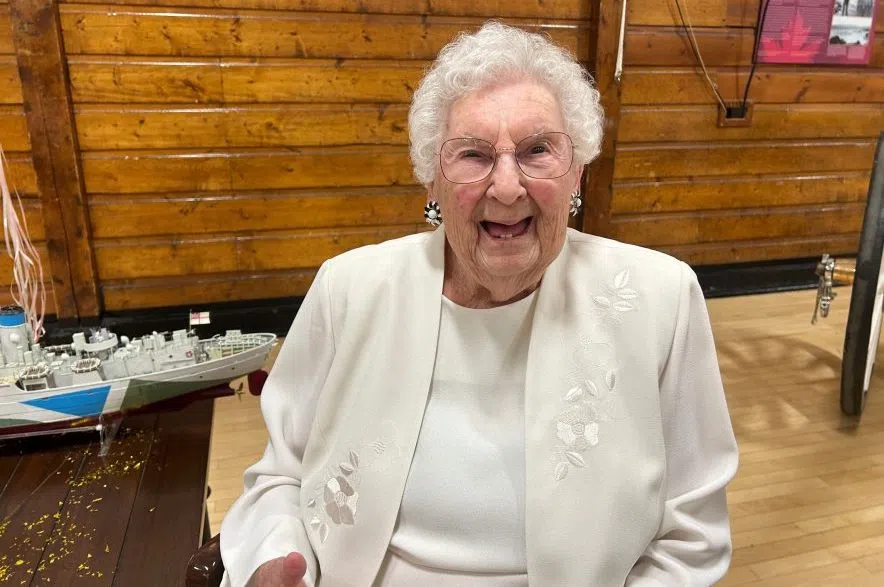In 1943, a couple of young girls were sitting on a farmhouse step, talking about the world beyond the fields — about uniforms and duty, and how nothing, not even their quiet town, felt untouched by the shadow of the Second World War.
Ruth Bond-Martinson still remembers that conversation on a quiet evening, when she was just 18 years old.
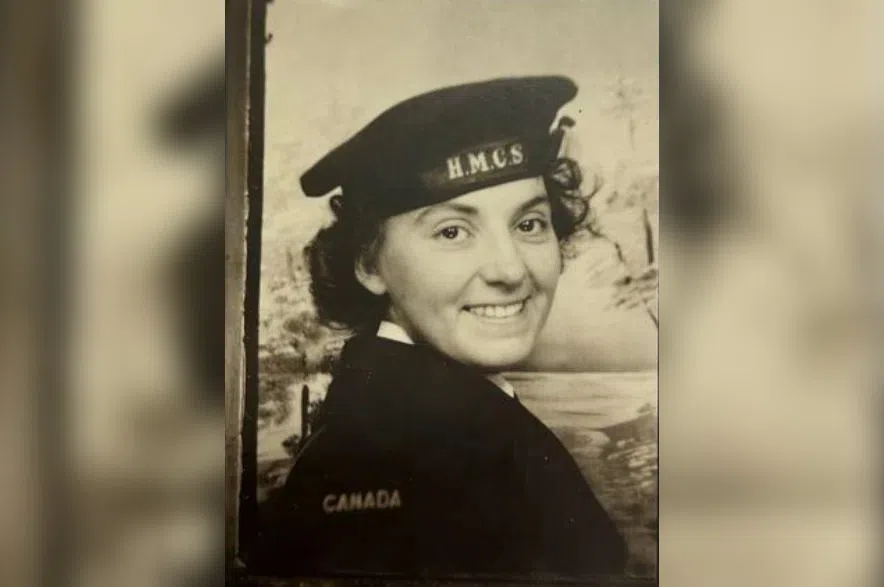
Ruth Bond-Martinson was just 18 years old in 1943 when she enlisted in the Women’s Royal Canadian Naval Service. (Submitted)
“My girlfriend and I, we talked and said, ‘You know, we should join,’” she recalled.
She said they went down to the draft office the next day, just to ask a few questions. They ended up signing the papers on the spot.
Read more:
- Second World War veteran celebrates 100th birthday in Saskatoon
- ‘Every day is fun because I’m still alive,’ says 110-year-old Canadian veteran
- In memory of Joyce Temple: WWII vet dies at age 101
The Women’s Royal Canadian Naval Service became Ruth’s new world. She trained alongside hundreds of other young women who had left the comforts of home to serve their country.
The work was demanding, and the expectations were low; not from the women themselves, but from the world around them. Many people still believed women couldn’t handle “men’s jobs.”
Listen to the story on Behind the Headlines:
“We said ‘What are they talking about?’” Bond-Martinson said with a laugh, her eyes bright with the same confidence that drove a generation of women to prove themselves.
“You know, we can do this, and we can do that! There isn’t a thing we can’t do.”
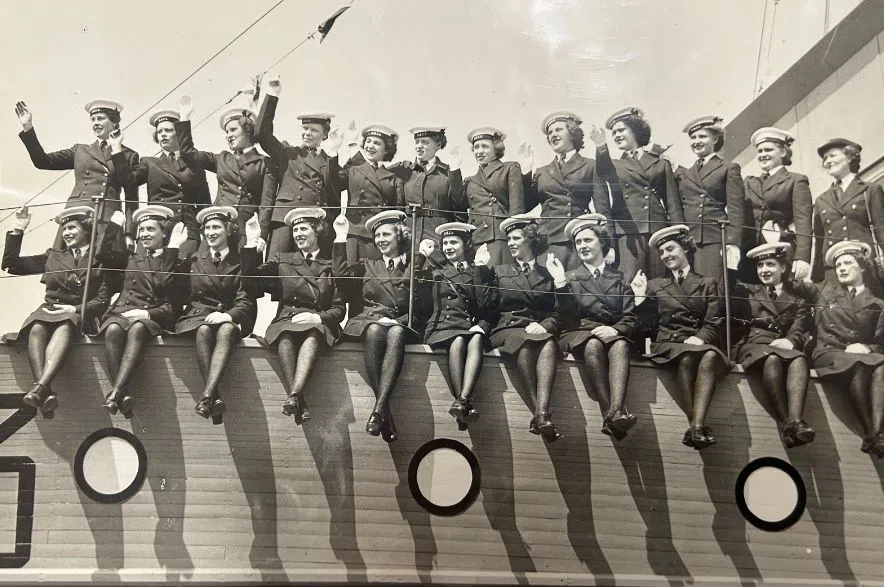
Bond-Martinson says she looks back fondly on her days in the Women’s Royal Canadian Naval Service, recalling great memories with the friends she made. (Submitted)
During the Second World War, more than 45,000 Canadian women served in uniform in the navy, army and air force. They were mechanics, drivers, coders, clerks, radio operators and nurses. They handled signals, repaired aircraft, trained recruits and kept the country running while the men went overseas.
But when the war ended, the uniforms came off. Bond-Martinson settled in Saskatoon. The Legion doors opened… but not to her.
Bond-Martinson said she remembers walking into the Legion only to learn there was no seat at the table for a woman.
“Of course we admired the uniform. The Legion were distinctive,” she recalled. “And I said, ‘This is funny. There’s no women.’ And they said, ‘Well, no, we don’t have women.’ So I got a bunch of us females all together.”
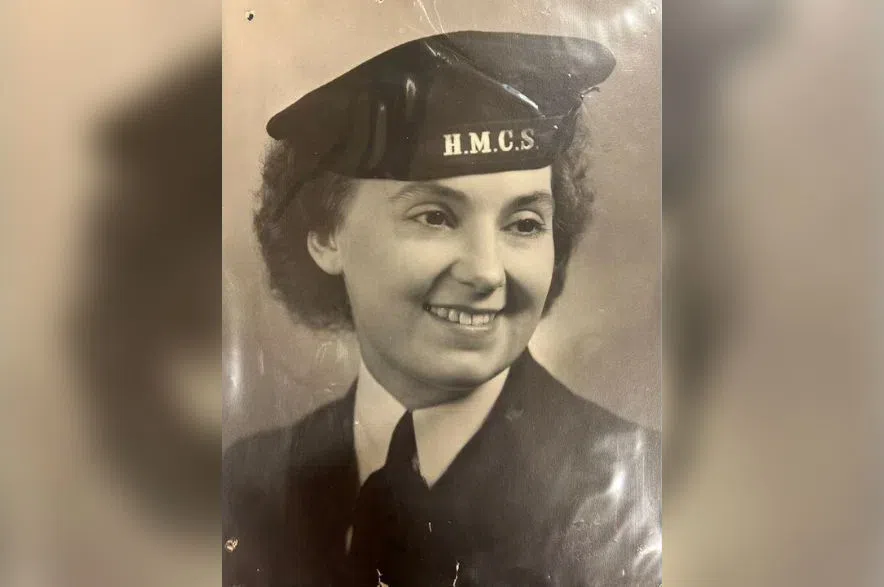
Ruth Bond-Martinson continues to inspire young women with her firm belief that they can, and will, do anything. (Submitted)
Refusing to be sidelined, Bond-Martinson said she set out to build her own table. She and her sisters in arms founded the Maple Leaf Unit, a women’s veterans’ group.
Together, they could speak freely, recount the intensity of their service and find understanding in each other’s experiences.
“By sharing, it eases what you feel,” she explained, her voice carrying the weight of decades of camaraderie.
That bond carried them forward, shaping the way they raised families, led communities and opened doors for the generations that followed.
“As a woman, I never liked to feel put down. That was the big thing. And I’ve told the girls, ‘Stand tall,’” Bond-Martinson said, beckoning toward her four daughters. “’Remember: head up, shoulders back, be strong.’ Which they are.”
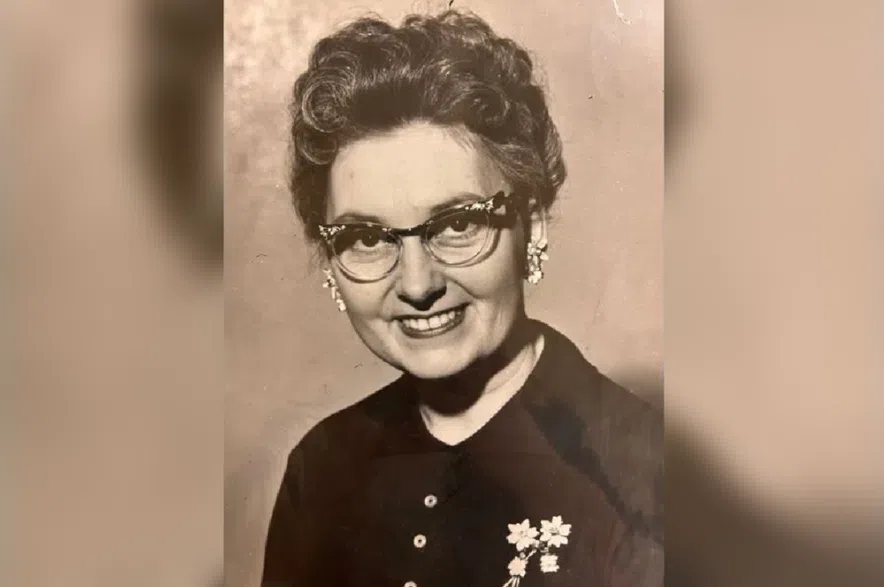
Ruth Ruth Bond-Martinson has built a legacy as a fierce advocate of the causes she believes in. (Submitted)
Bond-Martinson became a force for women’s and veterans’ rights in Saskatoon. She helped form the Jaycettes when women weren’t allowed to participate in the Junior Chamber of Commerce, founded the Wrenette Corps so girls could serve like the boys, and has long championed veterans through the Legion and the poppy campaign.
Bond-Martinson would never call herself a hero. She’d just say she did her part.
But through every act, every new idea, every young woman she told to “stand tall,” she’s built a legacy that’s bigger than medals or history books.
And even now, at 100 years old, she still looks toward the future.
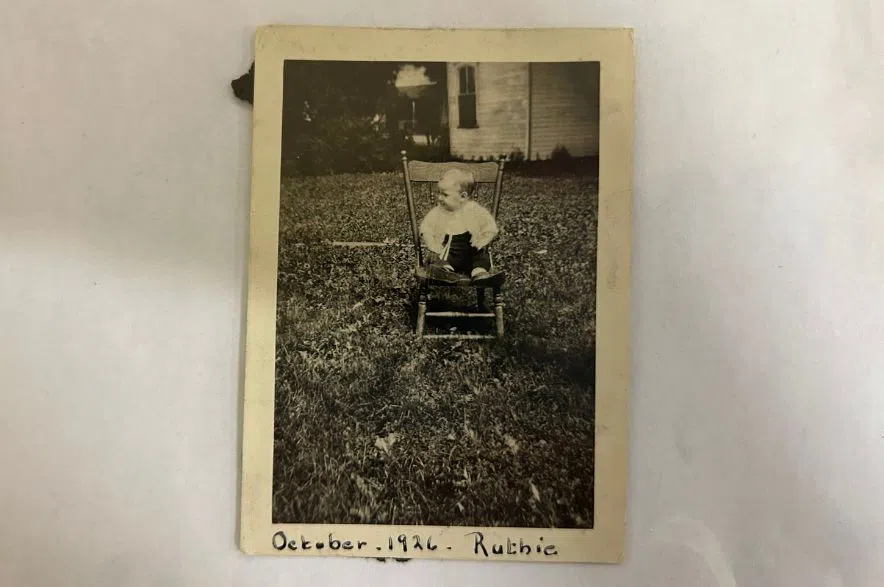
Who would have predicted that this tiny baby would become one of Canada’s most influential advocates for the rights of female veterans? (Submitted)
“I’m not through yet,” she said with a wry smile. “Although I may be 100, I still have goals that I haven’t reached.”
Bond-Martinson leaned forward slightly, her eyes bright and unwavering. She spoke to today’s women as if they were sitting on that farmhouse step with her all those years ago.
“Jump in. You’ve got to be involved,” she said, her voice full of urgency. “Don’t wait. Jump in there and be part of what they’re doing. You can’t hang back. Keep going. Never give up.”
This Remembrance Day, take a moment to think of the women who found their place at the table, even when no one invited them to take a seat. Women like Ruth Bond-Martinson who have proved again and again that there isn’t a thing they can’t do.
